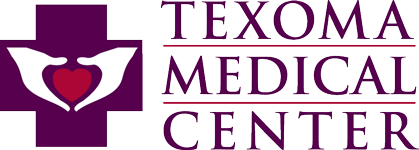Cancer Care
At Texoma Medical Center (TMC) in Grayson County, TX, we provide advanced screenings and diagnostic services to aid in the early detection of cancer. Our highly skilled surgeons also offer surgical treatment options for individuals diagnosed with cancer.
The American Cancer Society estimated 1.9 million individuals in the U.S. would be diagnosed with cancer in 2023 and, within that number, about 609,820 people would die of cancer. Texoma Medical Center and our affiliated providers offer screenings for some of the most common types of cancer conditions, including:
- Bladder cancer
- Breast cancer
- Colon cancer
- Kidney cancer
- Liver cancer
- Lung cancer
- Prostate cancer
- Testicular cancer
Advanced Diagnostic Tools and Screenings
Keeping up with cancer screening tests can be very helpful for early detection of cancer. At Texoma Medical Center we use the following technology and tools to help diagnose many types of cancer.
- Lung cancer screening for individuals considered at high risk can help to find cancer at an earlier stage when a cure is more likely. TMC Advanced Medical Imaging uses low-dose spiral computed tomography (LDCT) scans, which are better than chest X-rays at finding early-stage lung cancer and decrease the risk of dying from lung cancer.
- The Lung Nodule Program offers robotic-assisted bronchoscopy for patients who have suspicious lung nodules using the Ion endoluminal system from Intuitive. This technology helps pulmonologists find and biopsy lung lesions, as well leave a marker so that our vascular surgeon knows where to find the lesion for treatment.
- Colon cancer screening is performed using colonoscopy or flexible sigmoidoscopy procedures in which physicians can both screen for colon polyps and remove them. It is recommended that men and women at average risk for developing colorectal cancer begin getting screened starting at age 50.
- Mammography services are provided at two TMC locations. TMC Breast Care Center offers advanced medical imaging and diagnostic services, such as 3D tomosynthesis (tomo), digital mammography, stereotactic breast biopsy and breast ultrasound to help detect breast cancer in its earliest stages. 3D digital mammography is also available at the Outpatient Imaging Center at ER at Anna.
- Interventional radiologists often work with oncologists to perform minimally invasive procedures including Y-90 therapy, needle biopsy, and relief of obstructions. These techniques use imaging equipment to treat cancers.
Schedule an appointment
To find a doctor, complete the appointment form or call the free physician referral service at 903-416-3627.
Services and Conditions
Breast care
TMC Breast Care Center is the region’s only Breast Imaging Center of Excellence and is fully accredited by the American College of Radiology in mammography, stereotactic breast biopsy, breast ultrasound and ultrasound-guided breast biopsy.
Colon care
For patients presenting with digestive issues, gastroenterologists can screen for cancer using colonoscopy, flexible sigmoidoscopy, and GI Genius™, a computer-aided polyp detection system. During these procedures, colon polyps can be discovered and removed, sometimes preventing colorectal cancer from ever starting.
Interventional radiology
At TMC, interventional radiologists often work with oncologists to treat cancer patients using minimally invasive procedures. Some cancers can be diagnosed by a needle biopsy, which can be less painful and result in a shorter recovery than conventional biopsy procedures. Imaging techniques can also be used to locate obstructions to the normal flow of urine or bile caused by cancers.
Lung care
According to the American Cancer Society, lung cancer is the leading cause of cancer death for both men and women. High risk people should screen for lung cancer to help find cancer at an earlier stage when a cure is more likely.
Urologic care
Urologic cancer care includes bladder, kidney, prostate, and testicular cancers. Texoma Medical Center provides extensive screenings and procedures to diagnose and treat urologic cancers.
